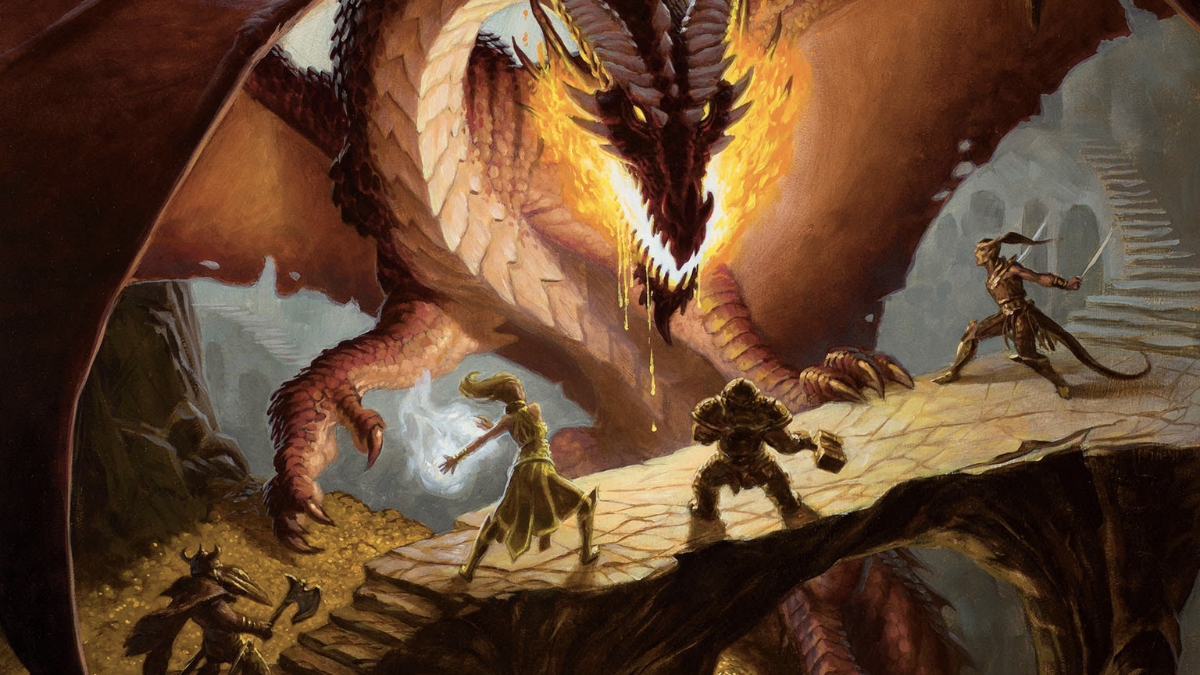D&D Publisher Releases Statement Walking Back Changes That Rocked the Community

In December, Dungeons & Dragons publisher Wizards of the Coast (a Hasbro subsidiary) announced plans for a new Open Game License (OGL) in conjunction with its upcoming major rules update, One D&D. At the time, the publisher assured the D&D community that the new OGL would only truly affect a handful of creators—but then the text of OGL 2.0 was leaked to io9‘s Linda Codega, and it was far more restrictive than Wizards claimed.
Ever since, the community has been openly criticizing Wizards, from creating the hashtag #OpenDND to canceling their subscriptions en masse to the Wizards-owned online play tool D&D Beyond. For nearly two weeks, Wizards remained mum about the backlash and its scheduled OGL release date was pushed back. Then on January 13, the publisher finally released a statement.
In that statement, Wizards outlined three goals for its new OGL: Preventing D&D content from being included in “hateful and discriminatory products” (which it doesn’t define), preventing use of D&D content for NFTs, blockchain games, or other web3 products, and essentially tightening competition by not allowing “major corporations” to use D&D content “for their own commercial and promotional purposes.” Wizards states these goals are driven by two principles: “(1) Our job is to be good stewards of the game, and (2) the OGL exists for the benefit of the fans.”
The publisher goes on to state that drafts of the OGL were shown to content creators and publishers for feedback, in order to ensure that the final document would be beneficial to the community at large. It then acknowledges the backlash directly, stating, “However, it’s clear from the reaction that we rolled a 1. It has become clear that it is no longer possible to fully achieve all three goals while still staying true to our principles.”
Here, Wizards lays out its plan, of which there are a few key takeaways. First, the new OGL won’t be ready right away, though the publisher doesn’t offer an approximate release date. Second, Wizards is removing the royalty structure proposed in the initial draft of the document which would require creators and publishers making above a certain amount from D&D content to report their earnings to Wizards and give the publisher a cut. The new OGL also won’t provide any license back language, which would effectively allow the publisher to use whatever it wants from third-party material without giving credit to its creators.
Finally, “The next OGL will contain the provisions that allow us to protect and cultivate the inclusive environment we are trying to build and specify that it covers only content for TTRPGs. That means that other expressions, such as educational and charitable campaigns, livestreams, cosplay, VTT-uses, etc., will remain unaffected by any OGL update. Content already released under 1.0a will also remain unaffected.”
These changes are major, but without the full text of the document, it’s impossible to know how relieved creators should be. At the very least, it seems that community backlash against the publisher has forced it to reconsider the harm it could cause.
Wizards also notes, “you’re going to hear people say that they won, and we lost because making your voices heard forced us to change our plans. Those people will only be half right. They won—and so did we.”
This statement seems disingenuous. As far as the community is aware, the draft of the new OGL that was leaked to io9 was close to a finished product, and Wizards would have moved forward with it had the community not learned about its contents and fought back. Plus, releasing drafts of a document to a handful of publishers and content creators simply isn’t the same as having a draft leaked publicly. The latter allows for vastly more reactions and engagement, and the fact of the matter is that Wizards likely wouldn’t have made major changes to the OGL without that mass response.
Plus, its statement directly references the publisher’s “partnerships in film, television, and digital games,” which indicates that its ultimate goal—as well as the goal of its parent company, Hasbro—is to protect its expansive IP, rather than the community that has made D&D what it is today.
Although Wizards is planning to change its new OGL, the damage to the community has already been done. Gaining back its trust may not be possible.
(featured image: Wizards of the Coast)
Want more stories like this? Become a subscriber and support the site!
—The Mary Sue has a strict comment policy that forbids, but is not limited to, personal insults toward anyone, hate speech, and trolling.—
Have a tip we should know? [email protected]